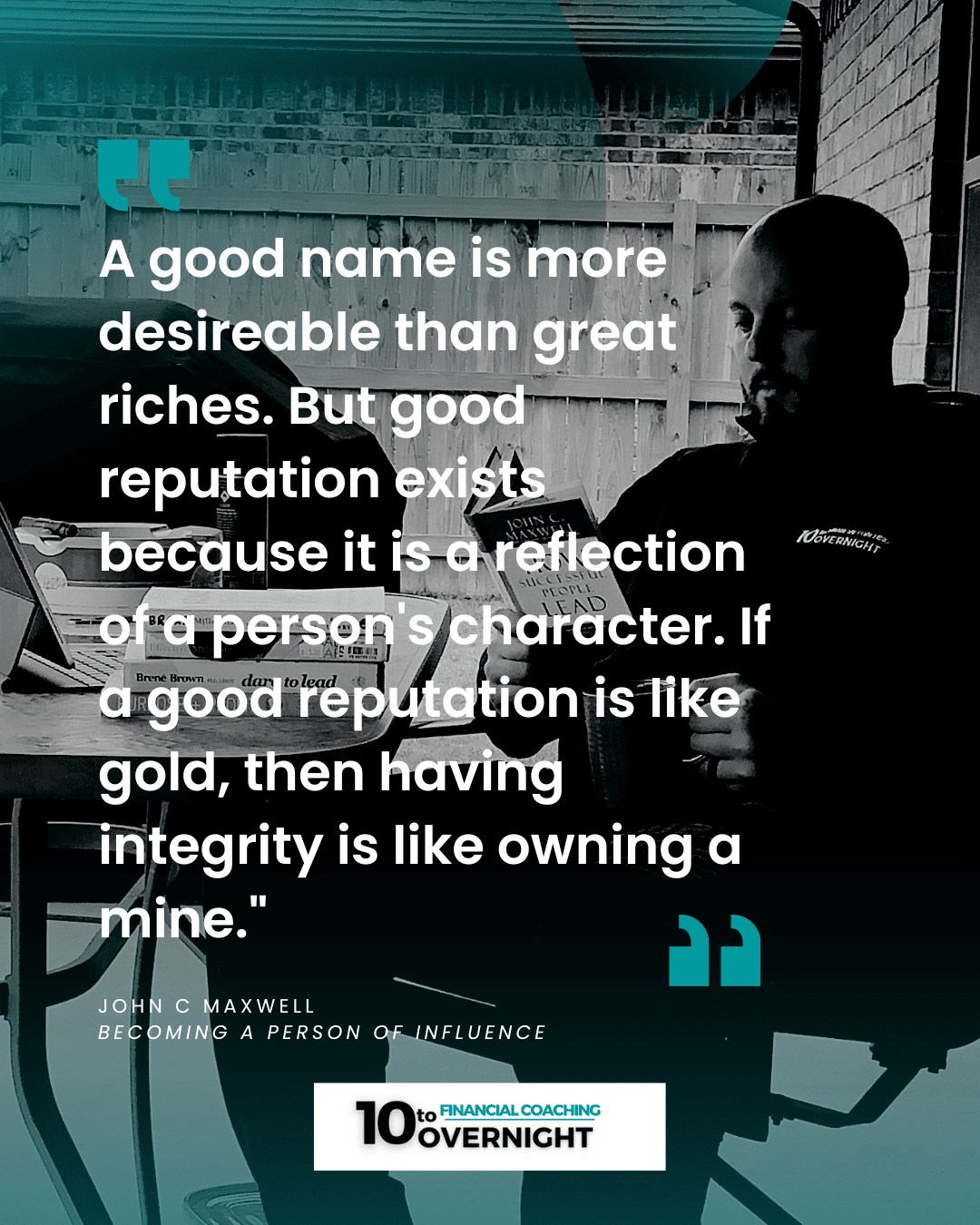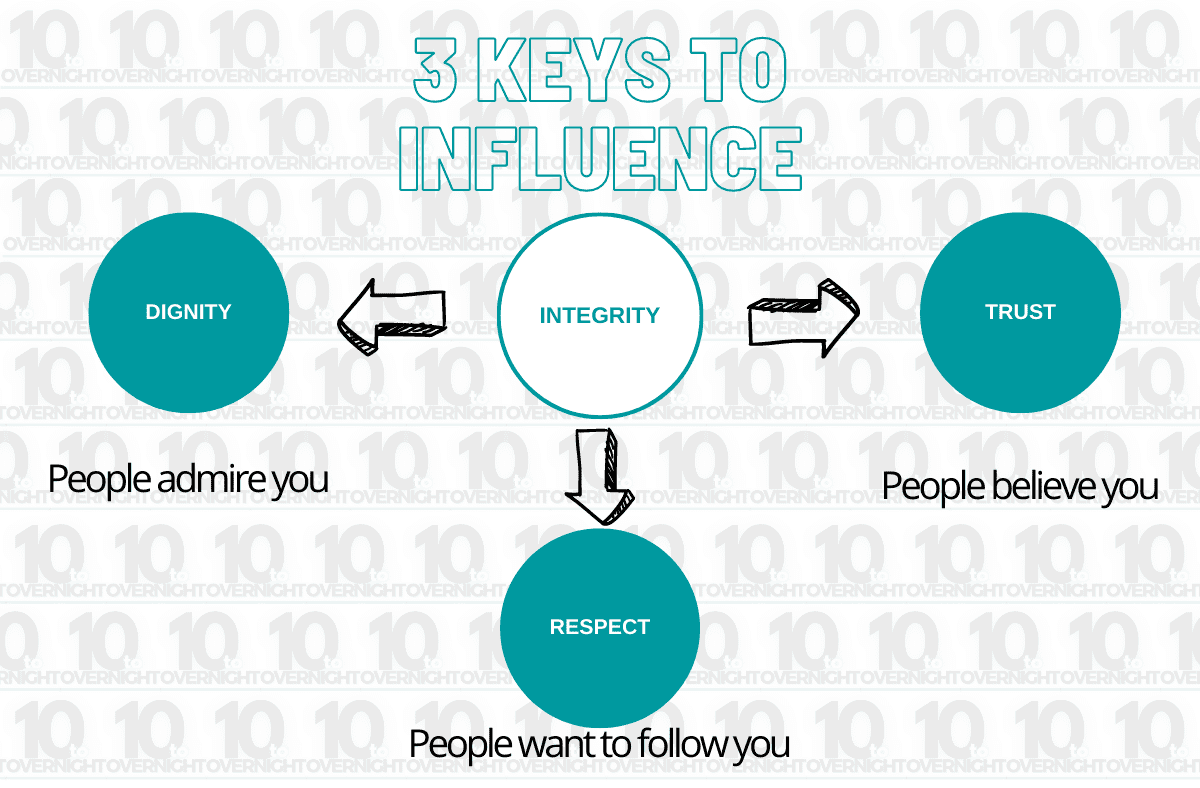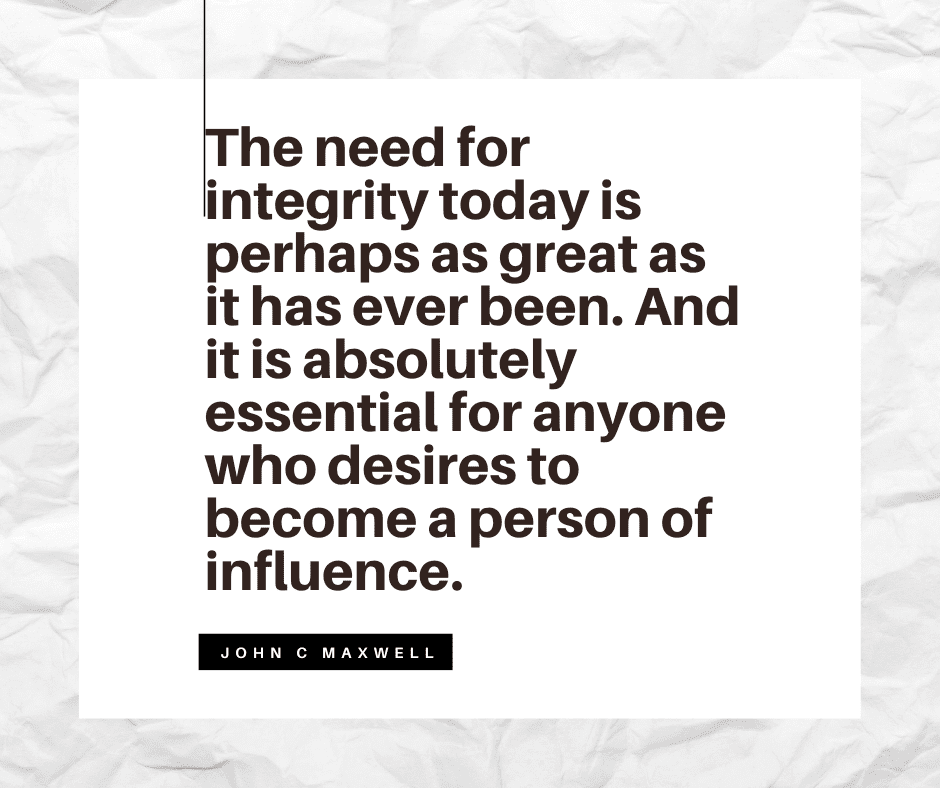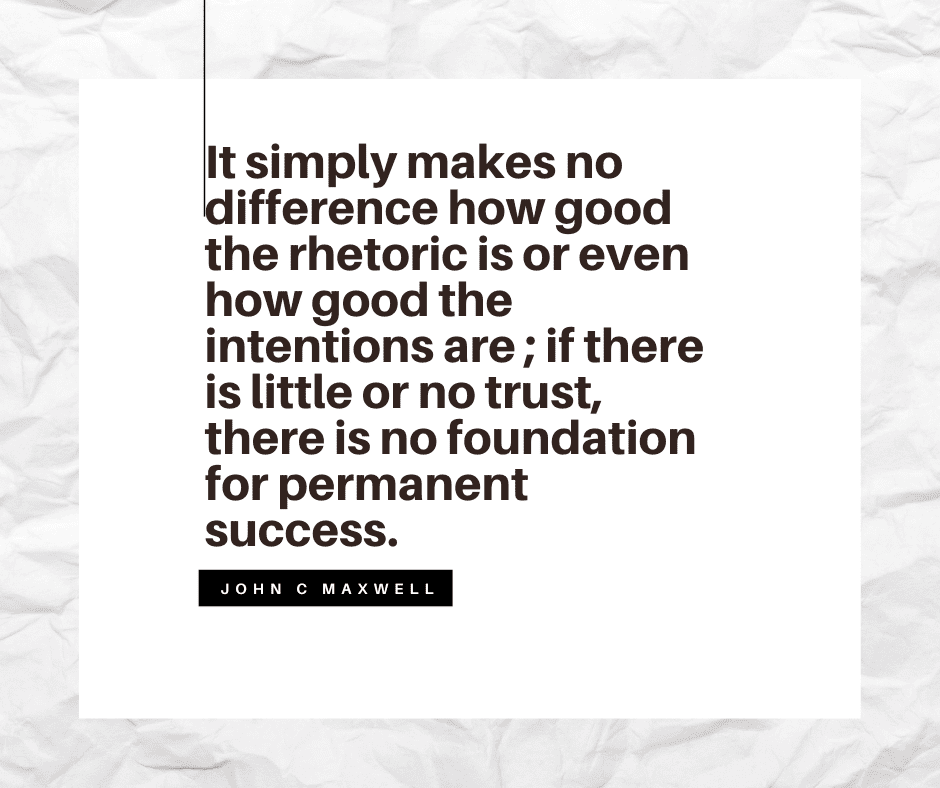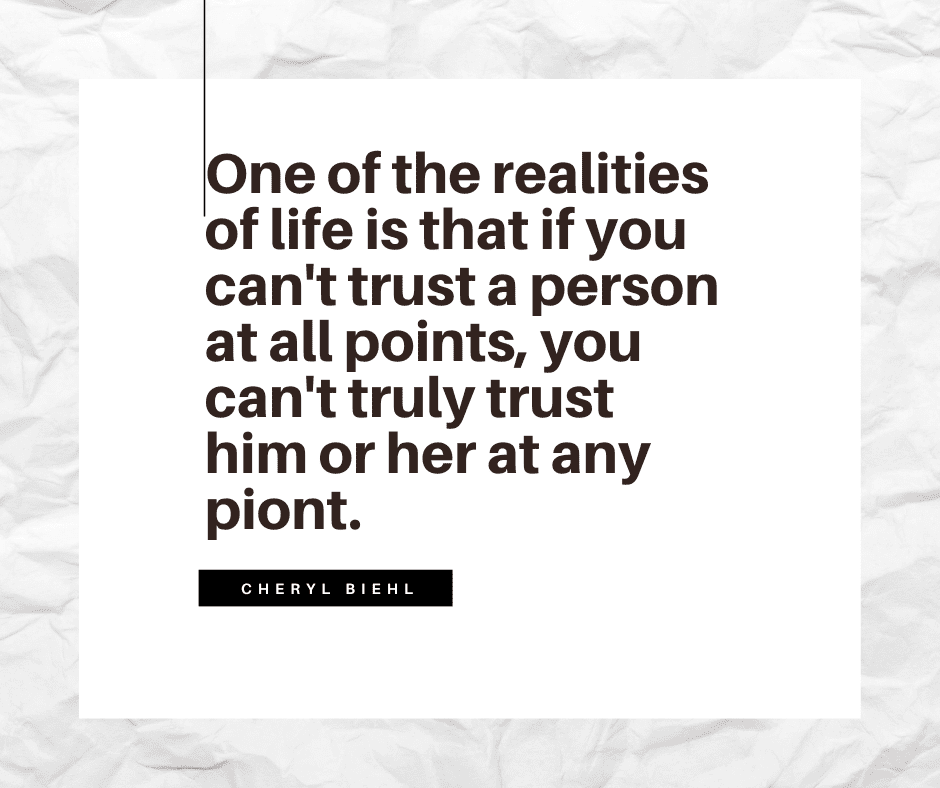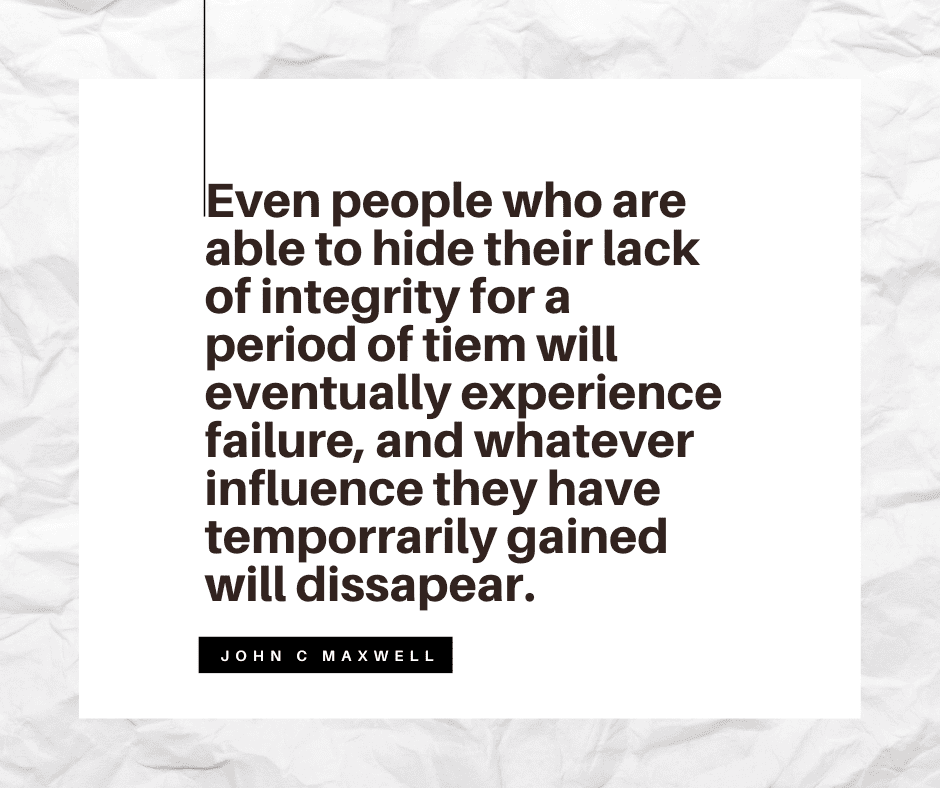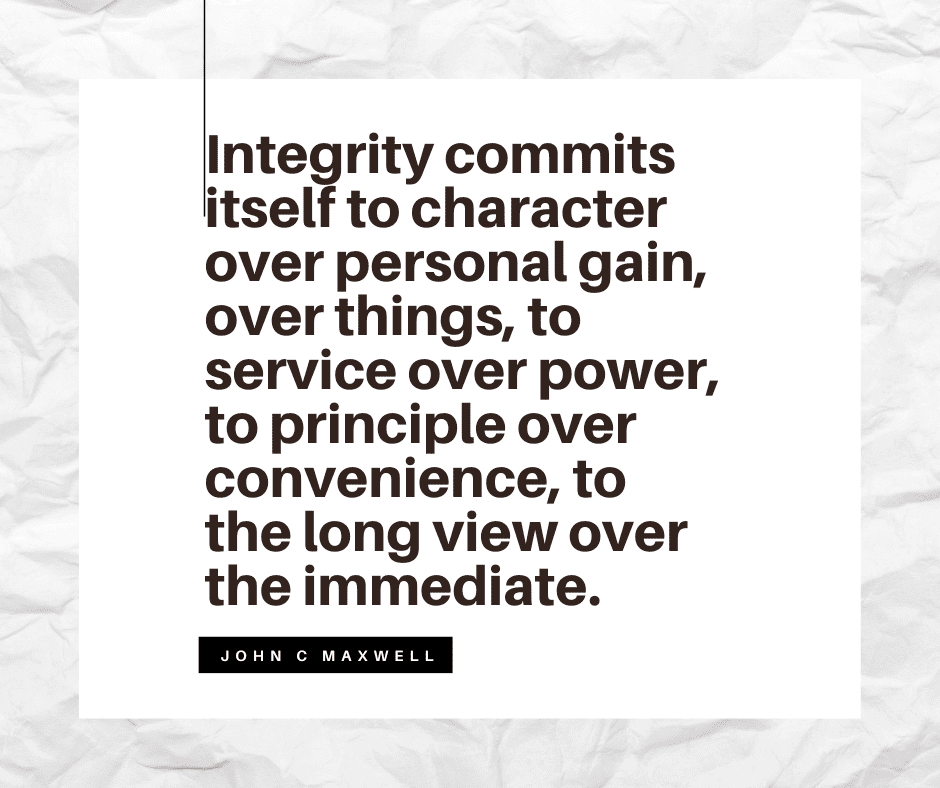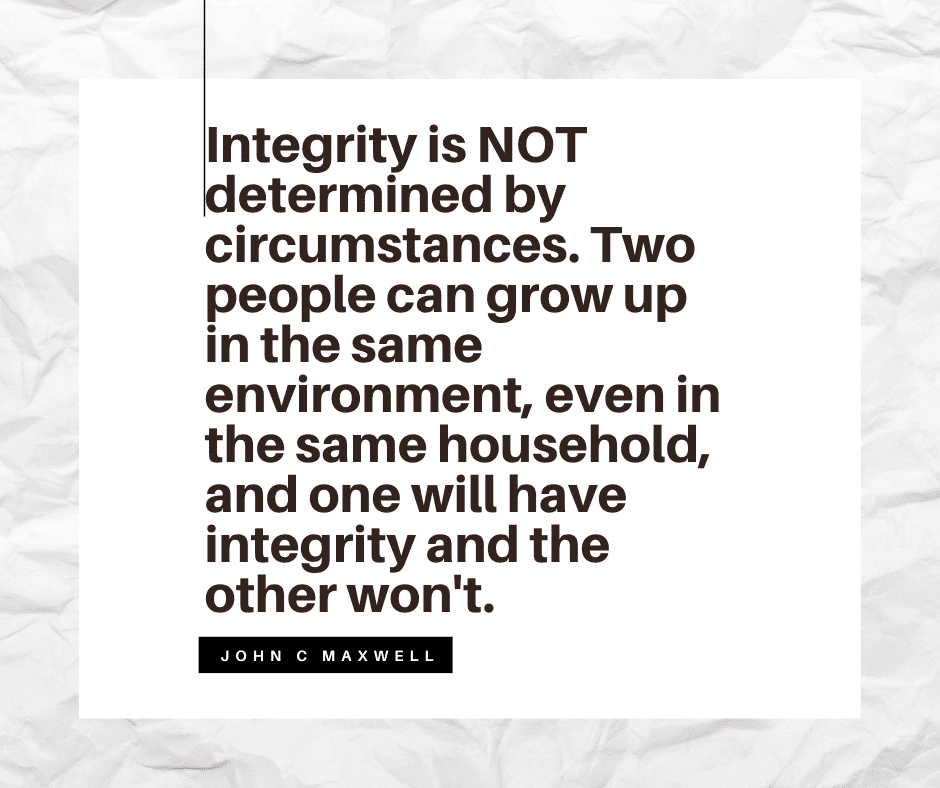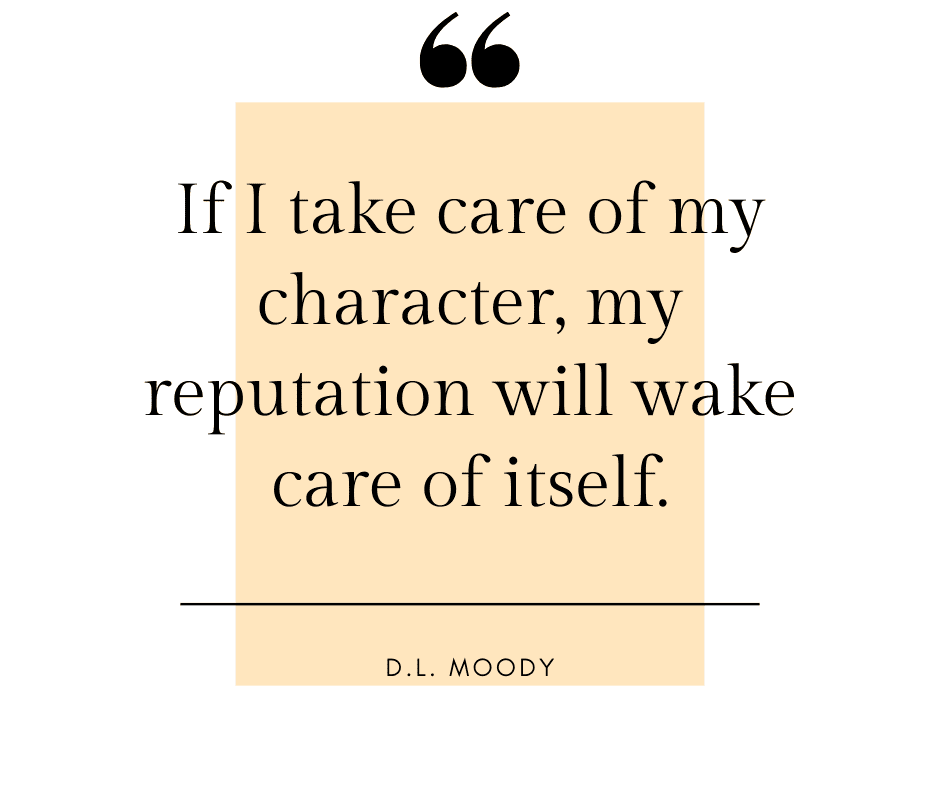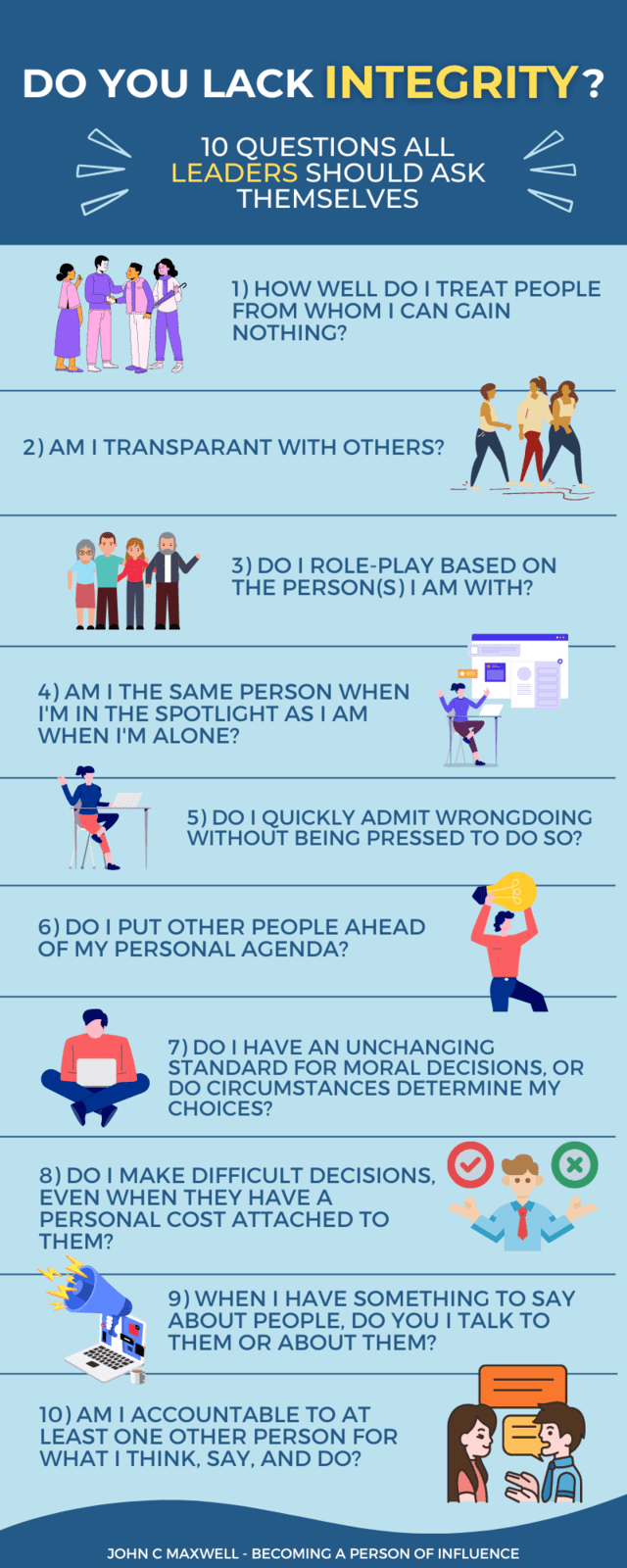The Amazon Associate Links within this post are here for the reader's convenience. Their use could result in a small referral fee for the author of this post and help support the growth of this page, however the author is not a paid sponsor of any products and his opinions are his own.
Do you have Integrity?
As I closed book #20 on my way to achieving the reading goal I set for myself this year of 26 I decided to revisit one of my favorite authors, John C Maxwell, and plucked the new read from "reading pile" which is no more mountain than pile. The new book is Becoming a Person of Influence.
Today's post comes out of Chapter 1 which focuses on Integrity. In the book John states that to be a person of influence is to be able to move people to act, to participate. Not surprisingly he tells the reader the only real way to get people to follow you, that is to act or participate as your suggestion or instruction is for them to trust you. And trust cannot exist if the leader lacks integrity. Let's clearly define integrity just as John did in the book citing a Webster's Dictionary; adherence to moral and ethical principles; soundness of moral character; honesty.
"If I try to use human influence strategies and tactics of how to get other people to do what I want, to work better, to be more motivated, to like me and each other- while my character is fundamentally flawed, marked by duplicity or insincerity - then, in the long run, I cannot be successful. My duplicity will breed distrust, and everything I do - even using so-called good human relations techniques - will be perceived as manipulative."
Integrity is not something that you practice every once in a while. It is routinely practiced day in and day out ultimately comprising your character and influences your reputation. The more you act with integrity the more people take notice. There is no gray area when it comes to integrity. You cannot be a little bit ethical, or make ethical decisions most of the time and still call yourself ethical. You either are, or you aren't. Phillip Brooks once said, "Character is made in the small moments of our lives." To which John Maxwell expanded on saying, "Anytime you break a moral principle, you create a small crack in the foundation of your integrity. And when times get touch, it becomes harder to act with integrity, not easier."
If you behave inconsistently people will not know if/when they should trust you. And without trust, influence goes out the window. How can an individual trust your leadership if they have seen examples in the past where you acted in your own self-interest over the good of the whole?
Tony Dungy is an NFL Hall of Fame Coach and Player whose teaching philosophy was to do the right things the right way. He commonly preached, “Champions don't do extraordinary things, They do ordinary things, but they do them without thinking, too fast for the other team to react. They follow the habits they've learned.” So to is it when it comes to integrity. It should be practiced every day so when that hard decision comes you can make the right call in an immediate way because you've already drilled integrity into your thought process consistently over time.
10 Questions to Measure Your Integrity
- How well do I treat people from whom I can gain nothing?
- Am I transparent with others?
- Do I role-play based on the person(s) I'm with?
- Am I the same person when I'm in the spotlight as I am when I'm alone?
- Do I quickly admit wrongdoing without being pressed to do so?
- Do I put other people ahead of my personal agenda?
- Do I have an unchanging standard for moral decisions, or do circumstances determine my choices?
- Do I make difficult decisions, even when they have a personal cost attached to them?
- When I have something to say about people, do I talk to them or about them?
- Am I accountable to at least one other person for what I think, say, and do?

